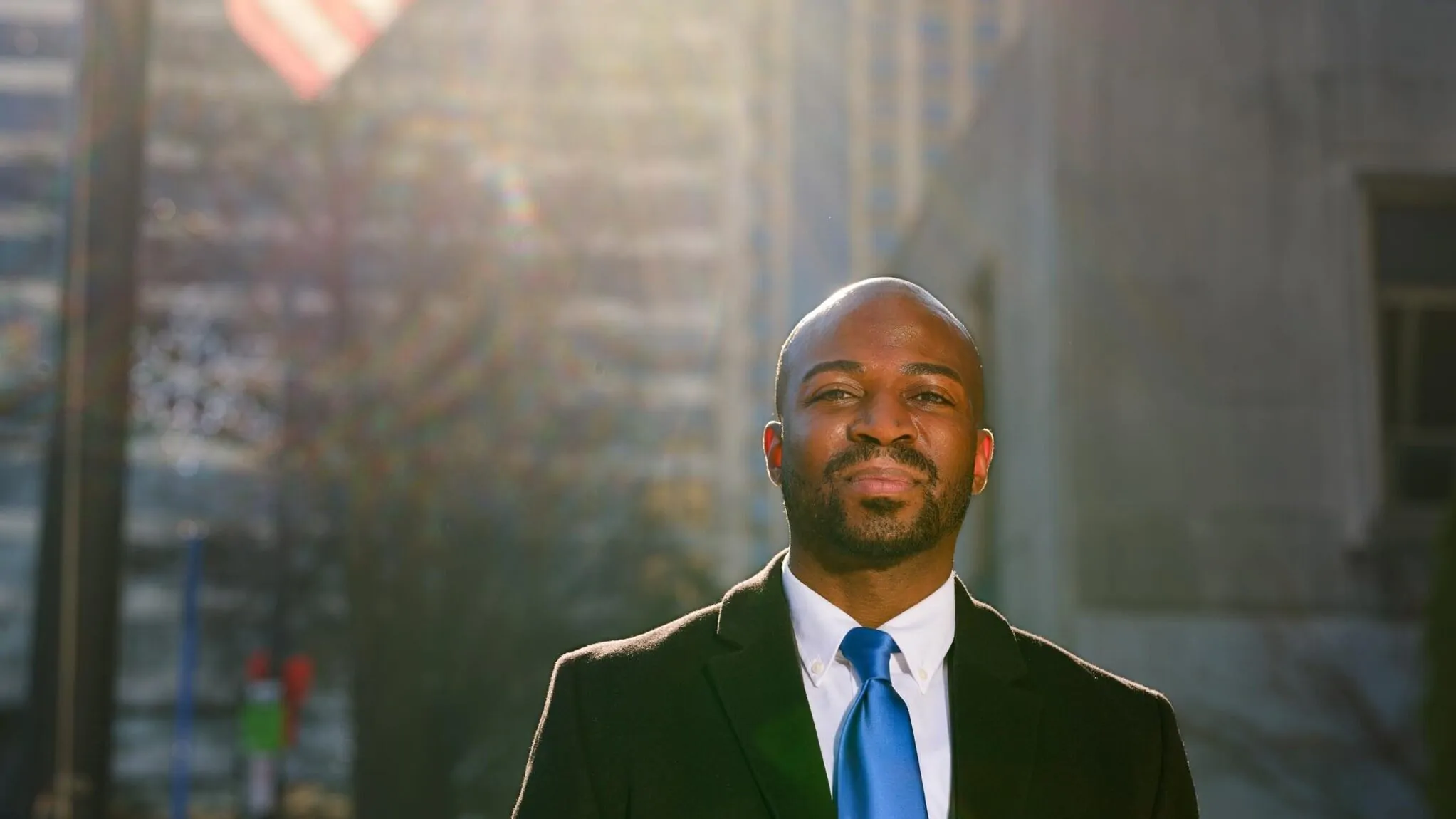Last month, 18-year-old college freshman Jabari Peoples was fatally shot by Homewood police. A preliminary independent autopsy revealed that Peoples was shot in the back and that, despite the lack of an exit wound, no bullet was found in the teen’s body. Peoples’ family, their attorneys and members of the community have since demanded that the Alabama Law Enforcement Agency release the body camera footage of the incident, raising serious concerns over the lack of transparency surrounding the circumstances of Peoples’ death.
Now, another voice is calling on ALEA to release the Peoples body cam footage: Dakarai Larriett, a former executive, entrepreneur and Democratic candidate for U.S. Senate, who himself has been at the receiving end of mistreatment by law enforcement. In a recent blog post on his campaign website, Larriett calls for the release of the Peoples footage, relating ALEA’s lack of transparency to his own unlawful arrest at the hands of Michigan law enforcement.
“In the pursuit of justice and accountability, the release of bodycam footage has become a point of contention that speaks volumes about our legal system and its treatment of citizens. My own harrowing experience with a false arrest—one that led me to fight for over five months to access my bodycam footage under the Freedom of Information Act, FOIA—has shown me firsthand the desperate need for increased transparency in law enforcement interactions,” Larriett’s statement reads. “The footage I eventually received was heavily redacted, obscuring critical evidence that I later used in a civil rights lawsuit. Even then, the judge overlooked the blatant criminality and discriminatory behavior exhibited by the officers involved, including an attempted drug planting caught on camera.”
“This experience has shaped my belief that if we want to truly achieve accountability, we must dismantle the barriers that inhibit transparency,” Larriett continued. “The recent case of Jabari Peoples, whose family is seeking access to bodycam footage related to his tragic shooting, further underscores this need. Homewood Mayor Alex Wyatt recently stated, ‘As the Mayor of Homewood, I continue to urge the Alabama Law Enforcement Agency to allow the family of Jabari Peoples to view the body camera footage from the June 23 shooting incident. Their request is completely understandable.’ Such statements highlight a growing recognition among leaders that families deserve clarity and accountability in the wake of violence involving law enforcement.”
Larriett emphasized that the call for the release of the Peoples body cam footage is not simply about this one incident, but that it “reflects a broader systemic issue that affects countless Americans.” As a part of his 2026 candidacy for U.S. Senate, Larriett has proposed a “Motorist Bill of Rights”—a set of federal rules and regulations that he believes would improve police accountability and make traffic stops and police interactions safer for everyone involved.
“As a candidate for the U.S. Senate, I propose a ‘Motorist Bill of Rights’ that aims to address these critical issues. Many citizens experience traffic stops not just as an inconvenience, but as a source of fear and anxiety. My vision for police accountability isn’t about abolishing the police or discarding traffic stops; rather, it is about making these interactions safer and more transparent for all parties involved,” Larriett stated.
“Traffic stops should be treated like any other government transaction, with clear rules, transparent procedures, and proper documentation available for everyone involved,” he added. “They should not be shrouded in ambiguity or subject to the whims of individual officers.”
Larriett’s proposed “Motorist Bill of Rights” would establish “federal rules of engagement” for all traffic stops across the country, addressing what he views as a lack of objectivity in current law enforcement procedure.
“The vague ‘probable cause’ standards that are often cited can mean anything or nothing, depending on who interprets them,” Larriett said. “We must establish clear, specific criteria for when and what scientifically based sobriety tests could be administered. This will not only protect motorists but will also give law enforcement a clear framework within which to operate.”
Another provision of Larriett’s proposal would be the required release of all evidence collected during a traffic stop—including body camera footage.
“Any evidence collected during these stops—such as bodycam footage, dashcam videos, and test results—must be transmitted to the motorist within twenty-four hours, free of charge. The current system, which allows for months of waiting for costly public records requests while the state builds its case against the motorist, is unacceptable,” Larriett said. “This delay not only obstructs justice but also creates an environment of distrust between the community and law enforcement.”
Larriett also made note of the Alabama state legislature’s recent passage of House Bill 202—legislation which greatly extends civil and criminal immunity for law enforcement in the state–arguing that the bill is a step in the wrong direction, leaving Alabamians without legal recourse when their rights are violated by the police.
“The principles of accountability must extend beyond mere documentation; they must translate into action,” Larriett wrote. “The recent Back the Blue Bill HB 202 highlights the challenges we will increasingly face in Alabama and across America. While it emphasizes support for law enforcement, we must also recognize that accountability should be a two-way street. Supporting our police does not mean turning a blind eye to misconduct. It is essential to foster a culture where officers feel empowered to report wrongdoing, knowing that they will not face retaliation for doing so.”
Larriett continued: “The story of Jabari Peoples is not just another headline; it is a reminder of the human lives affected by the policies we endorse. When families are left in the dark, seeking answers that should be readily available, we must ask ourselves: what kind of society do we want to be? One that prioritizes transparency and accountability, or one that perpetuates a cycle of mistrust and fear? In advocating for a Motorist Bill of Rights, I envision a system where law enforcement operates under a framework that respects the rights of individuals while ensuring public safety.
“We must create an environment where citizens feel safe during routine traffic stops and where officers are held accountable for their actions,” Larriett added. “The need for this change has never been more pressing, and we owe it to the families like that of Jabari Peoples to ensure that their voices are heard and their rights are protected.”

















































